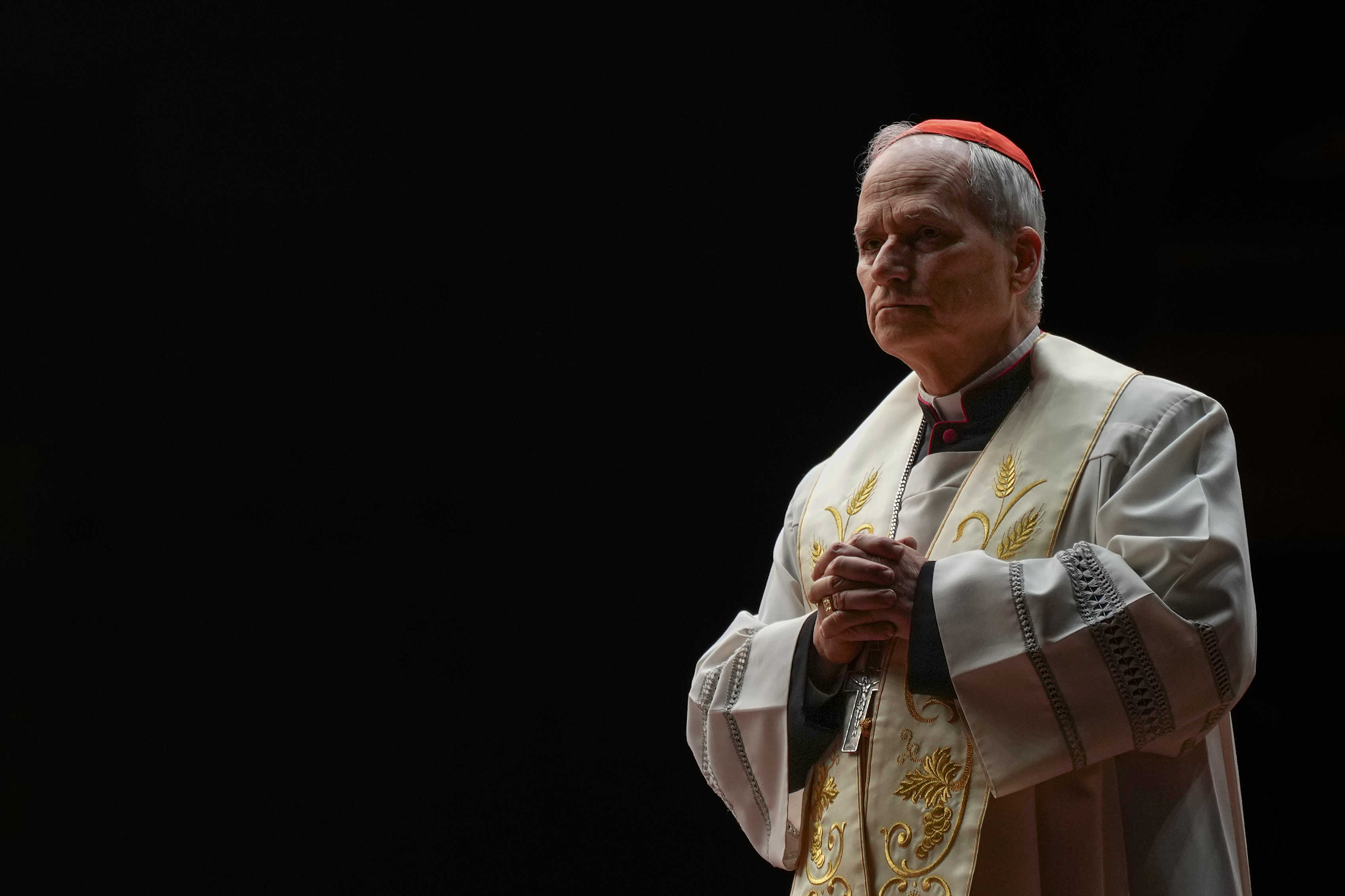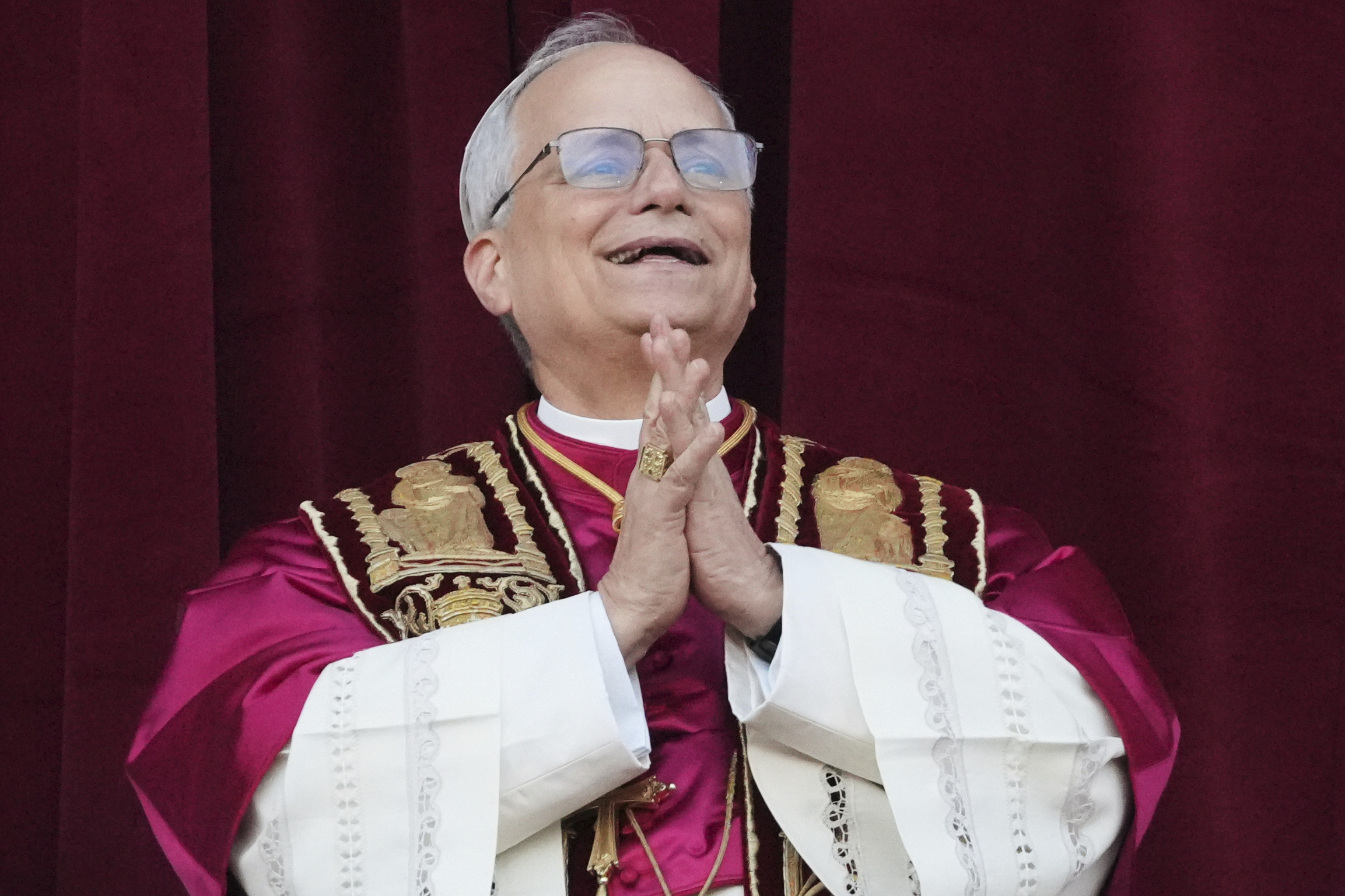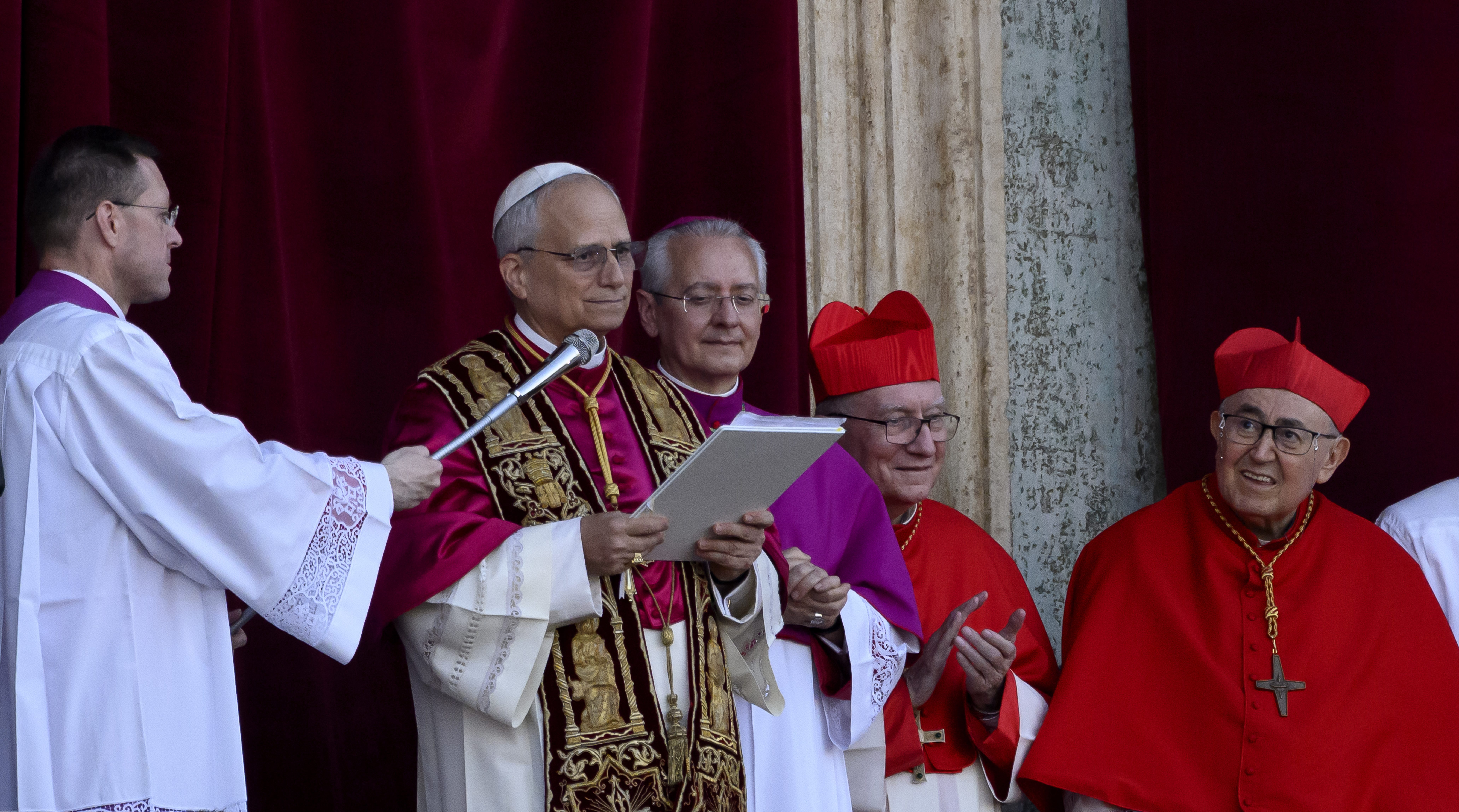American Pope! Robert Prevost Elected Leo XIV - History Made
History Made: Chicago's Own Robert Prevost Becomes Pope Leo XIV
A New Chapter for the Catholic Church: Introduction
The world held its breath on Thursday as the Vatican announced a momentous occasion: Cardinal Robert Francis Prevost of Chicago has been elected Pope and will take the name Leo XIV. This marks a historic first for the Roman Catholic Church, as Prevost becomes the first American to ascend to the papacy. But what does this mean for the Church, for America, and for the world? Let's delve into the details of this groundbreaking event.
The Election of Pope Leo XIV: A Momentous Occasion
The election of a new Pope is always a significant event, steeped in tradition and intrigue. This time, however, the significance is amplified. Cardinal Prevost's election as Pope Leo XIV breaks centuries of tradition.
The Conclave and the White Smoke
The world waited anxiously for the signal – the white smoke billowing from the chimney atop the Sistine Chapel. This iconic image, broadcast across the globe, signifies that the College of Cardinals, locked in conclave, has reached a decision. In this case, the smoke emerged after the fourth ballot on the second day of deliberations, announcing the selection of Cardinal Robert Francis Prevost as the next leader of the Catholic Church.
Who is Pope Leo XIV? Meet Robert Francis Prevost
Before he was Pope Leo XIV, he was Robert Francis Prevost, a son of Chicago. But who is he, and what experiences shaped him into the man chosen to lead the Catholic Church?
From Chicago to Peru: A Life of Service
Born and raised in Chicago, Prevost dedicated much of his ministry to serving in Peru. This experience likely profoundly shaped his understanding of the global Church and the challenges faced by Catholics in developing nations. Does his experience in South America give him a unique perspective to lead the Church?
A Shepherd of Souls: His Background and Ministry
Prevost's background likely includes significant involvement in pastoral care, theological study, and perhaps administrative roles within the Church. Further details on his specific qualifications and past roles are critical in understanding why the Cardinals chose him as their leader.
The Significance of an American Pope
The election of an American Pope is a seismic shift for the Catholic Church. But what does it really mean?
A Changing Church: Global Perspectives
For centuries, the papacy has been dominated by European figures. The election of an American Pope signifies a recognition of the Church's growing global presence and the shifting demographics of its followers. This signals a move towards a more inclusive and representative leadership.
America's Role: Influence and Responsibility
With an American at the helm, the Catholic Church's relationship with the United States may undergo significant changes. What responsibilities will come with this new influence?
The Legacy of Pope Francis and the Future of the Church
Pope Leo XIV succeeds Pope Francis, a figure known for his progressive stances and efforts to modernize the Church. How will Leo XIV build upon this legacy, and where might he steer the Church in new directions?
Continuity and Change: Navigating the Path Forward
Every new Pope brings his own vision and priorities. While maintaining core doctrines, Pope Leo XIV will undoubtedly introduce his own approach to addressing the challenges facing the Church, from declining membership in some regions to addressing social justice issues. Will he continue Pope Francis's efforts toward inclusion, or chart a different course?
The Papal Name: Why Leo XIV?
The choice of a papal name is a significant one, often reflecting the new Pope's aspirations and the legacy he wishes to emulate. Why did Cardinal Prevost choose the name Leo XIV?
Echoes of the Past: Historical Significance
Past Popes named Leo have played significant roles in Church history. By choosing this name, Pope Leo XIV may be signaling a desire to emulate their leadership and address similar challenges. What historical figures named Leo will he look to for guidance?
A Symbol of Strength and Wisdom
The name Leo, meaning "lion," can symbolize strength, courage, and wisdom. Perhaps Pope Leo XIV intends to lead with these qualities in a time of considerable change and uncertainty.
The Cardinals' Choice: Understanding the Conclave
The election of a Pope is a complex and secretive process. How did the Cardinals arrive at their decision to elect Cardinal Prevost?
Behind Closed Doors: The Deliberations of the Conclave
The conclave is shrouded in secrecy, with Cardinals sequestered in the Sistine Chapel until a decision is reached. What factors influenced their deliberations, and what qualities were they seeking in a new Pope? What swayed their decision toward Cardinal Prevost on the fourth ballot?
The Power of Consensus: Finding Common Ground
The election of a Pope requires a two-thirds majority vote. This means the Cardinals must find common ground and overcome any divisions in order to choose a leader who can unite the Church. The relatively quick decision (fourth ballot) suggests a strong consensus formed around Cardinal Prevost.
Challenges Facing Pope Leo XIV
The Catholic Church faces numerous challenges in the 21st century. What are some of the key issues Pope Leo XIV will need to address?
Declining Membership: Reaching New Generations
In many Western countries, the Catholic Church is experiencing a decline in membership. Pope Leo XIV will need to find innovative ways to reach new generations and make the Church relevant to their lives.
Social Justice Issues: Poverty, Inequality, and Environmental Concerns
Pope Francis emphasized the Church's role in addressing social justice issues, from poverty and inequality to environmental concerns. Pope Leo XIV will need to continue this work, advocating for the marginalized and promoting a more just and sustainable world.
Addressing Past Scandals: Transparency and Accountability
The Church has been rocked by scandals in recent years, eroding trust among the faithful. Pope Leo XIV must prioritize transparency and accountability, working to heal the wounds of the past and prevent future abuses.
Pope Leo XIV and America: A Special Relationship
As the first American Pope, Leo XIV will undoubtedly have a unique relationship with the United States. What implications does this hold?
A Voice for American Catholics
American Catholics may feel a stronger connection to the Church with one of their own at the helm. Pope Leo XIV's understanding of the American experience could enable him to better address the needs and concerns of Catholics in the United States.
Diplomacy and Global Politics
The Vatican plays a significant role in international diplomacy. Pope Leo XIV's American background could influence the Vatican's approach to global politics, particularly in its relationship with the United States.
The Inauguration of Pope Leo XIV: What to Expect
The inauguration of a new Pope is a grand and solemn ceremony. What can we expect from Pope Leo XIV's inauguration?
Tradition and Modernity: A Blend of Ritual and Innovation
The inauguration will likely blend ancient traditions with modern elements, reflecting the Church's ongoing efforts to adapt to the changing world. Expect a ceremony rich in symbolism, but also one that reflects Pope Leo XIV's own style and priorities.
A Message to the World: Setting the Tone for His Papacy
Pope Leo XIV will likely use his inauguration address to set the tone for his papacy, outlining his vision for the Church and the world. This will be a crucial moment for understanding his priorities and the direction he intends to take the Church.
Reactions to the Election: A World United in Anticipation
The announcement of Pope Leo XIV's election has been met with a mix of excitement, anticipation, and hope around the world.
From Cardinals to Congregants: A Global Response
Reactions have poured in from Cardinals, Church leaders, political figures, and everyday Catholics across the globe. These reactions offer valuable insights into what people expect from the new Pope and the challenges he will face.
A Time of Hope and Renewal
The election of Pope Leo XIV marks a new chapter in the history of the Catholic Church. It's a time of hope, renewal, and the opportunity to address the challenges facing the Church and the world.
Conclusion: Pope Leo XIV - A New Era Dawns
The election of Cardinal Robert Francis Prevost as Pope Leo XIV is a historic moment. As the first American Pope, he brings a unique perspective to the papacy. He inherits the legacy of Pope Francis and the responsibility to lead the Church through a time of significant challenges. All eyes are now on Pope Leo XIV as he embarks on this momentous journey, guiding the Catholic Church into a new era. Only time will tell what his pontificate will bring, but one thing is certain: the world is watching with anticipation.
Frequently Asked Questions (FAQs)
-
Q: Why is Pope Leo XIV's election considered historic?
A: Because he is the first American to be elected Pope in the history of the Roman Catholic Church.
-
Q: What are some of the challenges Pope Leo XIV will face?
A: Declining membership in some regions, addressing social justice issues, and rebuilding trust after past scandals are major challenges.
-
Q: What is the significance of the papal name "Leo XIV"?
A: Papal names are often chosen to honor previous Popes or to symbolize certain qualities. The name Leo can represent strength, courage, and wisdom.
-
Q: How did the Cardinals elect Pope Leo XIV?
A: Pope Leo XIV was elected by the College of Cardinals during a conclave in the Sistine Chapel. He secured the required two-thirds majority vote on the fourth ballot.
-
Q: Where did Pope Leo XIV serve before becoming Pope?
A: Before becoming Pope, Robert Francis Prevost served much of his ministry in Peru.



